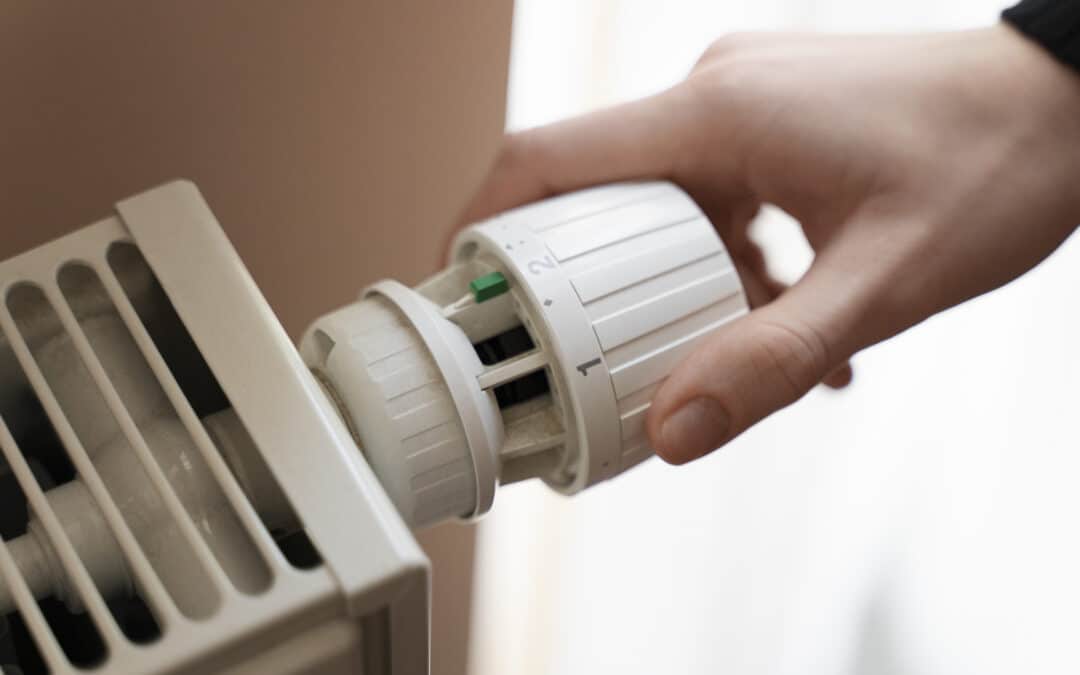Heating and cooling are essential elements of any building, whether it is a residence or a workplace. However, these systems often have a considerable impact on our energy consumption and consequently, on our energy bill. This is why it is increasingly important to turn to energy-efficient heating and cooling solutions to reduce our impact on the environment and our energy costs. In this article, we will explore the benefits of energy-efficient air conditioning and heating systems and their impact on our daily lives.
How do energy-efficient heating and cooling systems work?
Energy-efficient heating and cooling systems work very differently from older, less efficient systems. Modern technologies use state-of-the-art components to provide increased energy efficiency and reduce operating costs.
Energy-efficient air conditioners use variable speed compressors and fans to regulate temperature more precisely and efficiently. Older compressors and fans operate at fixed speeds, which can lead to temperature fluctuations and overconsumption of energy.
Energy-efficient heating systems also use advanced technologies to reduce energy consumption. Modern appliances use high-efficiency burners to convert gas into heat, reducing the amount of gas needed to heat a room. Modern heating systems can also be equipped with smart thermostats that regulate the temperature more precisely and thus reduce energy consumption.
In addition, energy-efficient heating and cooling systems can be equipped with additional features to optimize their performance, such as high-performance air filters that improve indoor air quality and zoning systems that heat or cool only the areas needed. All of these features help make systems more efficient and cost-effective in the long run.
The comfort and indoor air quality benefits of energy-efficient heating and cooling systems
Energy-efficient heating and cooling systems offer several advantages in terms of comfort and indoor air quality. This is because these systems are able to maintain a constant and comfortable temperature in your home, without the need to constantly make manual adjustments. In addition, thanks to their ability to regulate, these systems can provide a constant level of humidity in your home, which can help prevent dry air that can cause irritation of the eyes, throat and nose.
Energy-efficient air conditioning and heating systems are also able to filter particles and allergens from indoor air. High-quality filters can capture dust particles, pet hair, pollen and other airborne allergens. Thus, people with allergies or asthma can benefit from cleaner and healthier indoor air.
Finally, energy-efficient heating and cooling systems are also quieter than traditional systems. The new system models are designed with high-quality fans and compressors that operate smoother and quieter. In addition, temperature regulation is more precise, which means that on/off cycles are less frequent and therefore less noisy.
In sum, the benefits in terms of comfort and indoor air quality are clear with energy-efficient heating and cooling systems. This can not only improve the quality of life at home, but also contribute to the health of the family.
The economic benefits of energy-efficient heating and cooling systems
Energy-efficient heating and cooling systems offer many economic benefits to homeowners and businesses. First, these systems consume less energy than traditional systems, which reduces monthly energy bills. In addition, they are more durable and require less repair and servicing, which reduces long-term maintenance costs.
In terms of initial investment, energy-efficient heating and cooling systems may seem more expensive than traditional systems, but they pay for themselves quickly thanks to savings on monthly energy bills. In addition, governments and organizations often offer subsidies and tax incentives to encourage the installation of energy-efficient systems, which can help reduce upfront costs.
Finally, energy-efficient heating and cooling systems can also increase the resale value of a home or building. Potential buyers are often willing to pay more for a property with an energy-efficient system because they know they will benefit from increased energy efficiency and lower energy bills.
In sum, the economic benefits of energy-efficient heating and cooling systems are numerous and can help homeowners and businesses save money in the short and long term.
The environmental benefits of energy-efficient heating and cooling systems
The environmental benefits of energy-efficient heating and cooling systems are considerable. Indeed, these systems use much less energy than traditional systems, which reduces their environmental impact.
Traditional heating and cooling systems often use fossil fuels to produce energy, resulting in greenhouse gas emissions. By opting for energy-efficient systems, it is possible to reduce these emissions and contribute to the fight against climate change.
In addition, energy-efficient systems often have a longer lifespan than traditional systems. This means they need to be replaced less frequently, further reducing their environmental impact.
Finally, some energy-efficient heating and cooling systems may even use renewable energy sources, such as geothermal or solar energy. These energy sources are inexhaustible and do not generate greenhouse gas emissions, making them a very attractive option for environmentally conscious consumers.
In summary, energy-efficient heating and cooling systems have many environmental benefits. They reduce greenhouse gas emissions, extend the life of equipment and use renewable energy sources, making them an environmentally friendly and responsible option.
How to choose the right energy-efficient heating and cooling system for your needs?
Choosing an energy-efficient heating and cooling system should be based on several criteria, such as the size of your home, the area you live in, your heating and cooling needs, and of course, your budget. Here are some things to consider to help you choose the system that best suits your needs:
- The size of your home: It is important to choose a system that fits the size of your home. A heating or cooling system that is too small will not be able to heat or cool your home efficiently, while a system that is too large will be expensive to purchase and install, and could consume more energy than necessary.
- The region you live in: If you live in a cold region, an energy-efficient heating system, such as a heat pump, will be more suitable for your needs. If you live in a hot region, an energy-efficient air conditioning system, such as a reverse cycle system, will be more suitable.
- Your heating and cooling needs: If you live in an area with harsh winters, you will need a powerful and efficient heating system. If you have allergy or asthma issues, you may want to choose an air conditioning system with a premium air filter to improve indoor air quality.
- Your budget: The cost of purchasing and installing an energy-efficient heating and cooling system may be higher than that of a conventional system. However, long-term energy savings can offset these initial costs. It is important to consider your budget to choose a system that suits your needs while remaining affordable.
- System characteristics: It is also important to consider the specific characteristics of each system, such as the energy efficiency rate, the technology used, and additional features, such as temperature control or remote connectivity. These features can impact system performance and cost in the long run.
In summary, choosing an energy-efficient heating and cooling system depends on many factors, including the size of your home, the area you live in, your heating and cooling needs, your budget, and the specific characteristics of each system. It’s important to consider all of these factors to choose the system that best suits your needs while reducing your energy consumption and costs in the long run.
Conclusion: Why choose an energy-efficient heating and cooling system?
By opting for an energy-efficient heating and cooling system, you can enjoy many advantages. First, these systems provide increased comfort through precise temperature and humidity regulation, which can improve indoor air quality and prevent mold growth.
In addition, by choosing a high-efficiency heating and cooling system, you can save money on your energy bill. These systems use less energy to produce the same amount of heating or cooling as traditional systems, resulting in lower operating costs.
Finally, an energy-efficient heating and cooling system helps reduce the environmental impact of your home. By using less energy to heat or cool your home, you reduce your carbon footprint and help protect the environment.
To choose the right energy-efficient heating and cooling system for your needs, you need to consider several factors, such as the size of your home, the climate of your area, your budget and your comfort preferences.
In short, opting for a high-efficiency heating and cooling system is a wise choice to improve your comfort, save energy and help preserve the environment. Taking into account the economic, environmental and comfort benefits, you can choose the system that best suits your needs and lifestyle.


